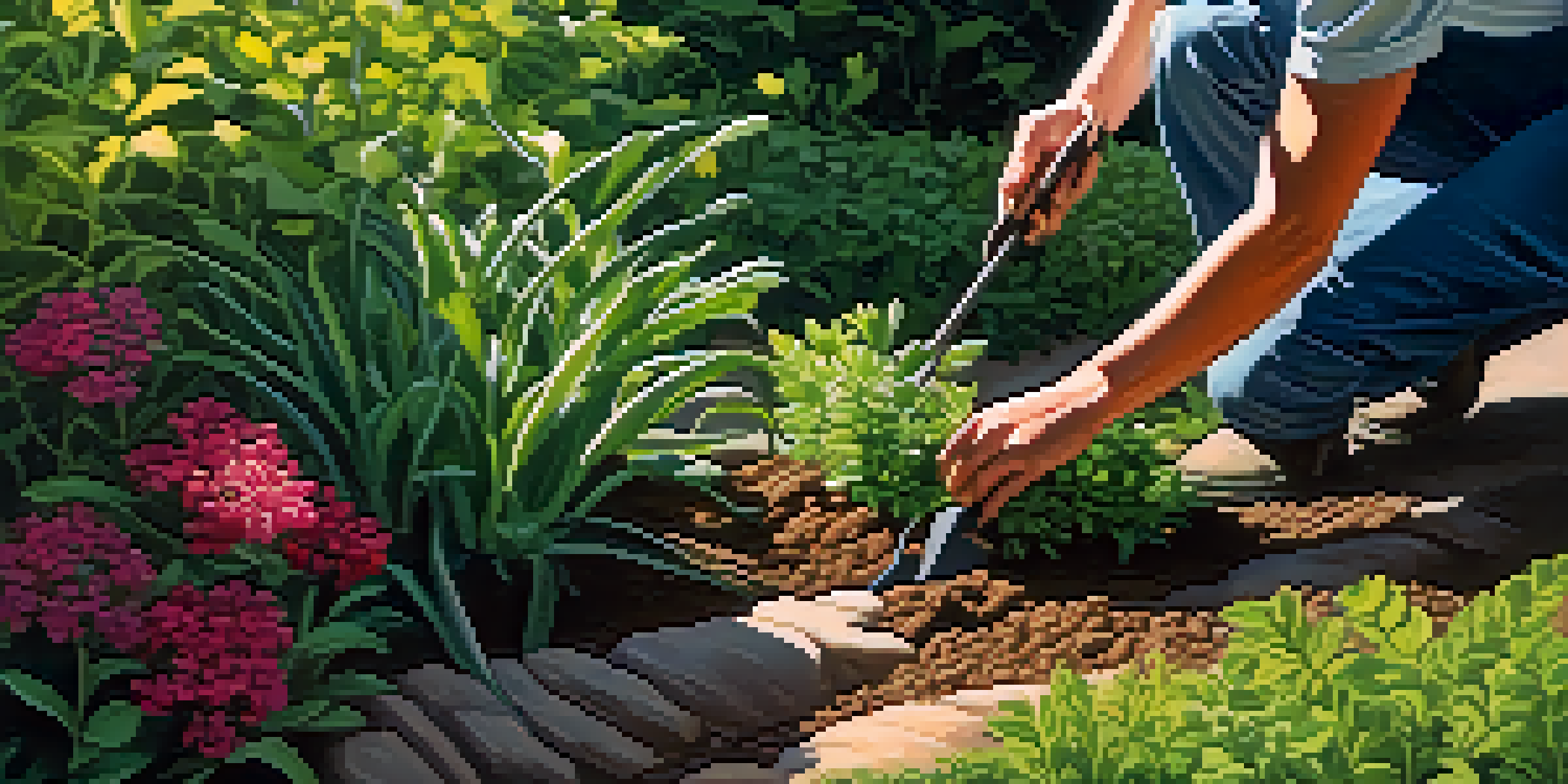How to Divide and Propagate Perennial Plants Successfully

Understanding the Basics of Perennial Plants
Perennial plants are those that live for more than two years, returning each season. They can bring vibrant color and life to your garden, making them a favorite among gardeners. Understanding their growth patterns is essential when considering division, as it helps you know when and how to propagate them effectively.
When is the Right Time to Divide Perennials?
Timing is crucial for dividing perennials successfully. Generally, the best time to divide them is during early spring or fall when the plants are either just starting to grow or are winding down for the season. This ensures they have ample time to recover and establish new roots before the extreme temperatures set in.
Timing is Key for Dividing
Dividing perennials is best done in early spring or fall to ensure successful recovery.
Gathering the Right Tools for Division
Before diving into dividing, gather some essential tools. You'll need a sharp spade or garden fork, a garden knife, and perhaps some gloves to protect your hands. Having the right tools on hand will make the process smoother and help you avoid damaging the plants you wish to propagate.
Steps to Successfully Divide Perennial Plants
To divide a perennial, start by carefully digging around the plant to loosen the soil. Gently lift the plant out of the ground, taking care not to damage the roots. Once out, you can use your spade or knife to cut the root ball into smaller sections, ensuring each division has enough roots and shoots to thrive.
Proper Preparation is Essential
Gathering the right tools and preparing the divided plants enhances their chances of thriving.
Preparing Divided Plants for Replanting
After dividing, it's crucial to prepare the sections for replanting. Trim any damaged roots and remove dead or yellowing foliage. This way, you encourage healthy growth. You can also soak the roots in water for a short period to hydrate them before planting.
Choosing the Right Location for New Plants
Selecting the right spot for your newly divided plants can significantly impact their success. Ensure they receive adequate sunlight, appropriate drainage, and the right soil type. By placing them in a location that meets their specific needs, you set them up for healthy growth and blooming.
Avoid Common Division Mistakes
Being aware of common pitfalls, such as incorrect timing and inadequate watering, can promote successful plant division.
Watering and Care After Planting
Once you've replanted your divisions, watering is essential to help them establish. Water thoroughly but avoid over-saturating the soil. Regularly check the moisture levels, especially during the first few weeks, to ensure your plants are getting the hydration they need to thrive.
Common Mistakes to Avoid When Dividing Perennials
Even experienced gardeners can stumble when dividing perennials. Some common mistakes include dividing at the wrong time or cutting too many roots, which can stress the plant. Additionally, neglecting proper watering after planting can hinder their recovery, so always keep an eye on their needs.